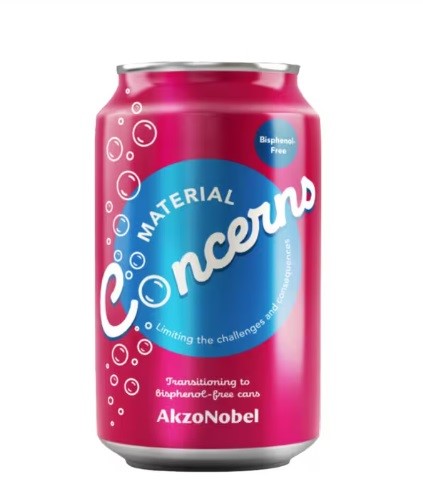

The beverage can industry is now making continuous efforts to use materials free from any substances of concern. These efforts have received a significant boost with the introduction of advanced coatings technology by AkzoNobel. A new manufacturing facility is also being created in Spain to further support this transition.

The first two items in the company's new AccelstyleTM line of packaging coatings have recently been released. Both are safe since they were made to go outside standard two-piece aluminium beverage cans and contain no bisphenols, styrene, or PFAS. AccelshieldTM 700, the first BPx-NI* (free of deliberately added bisphenols) internal coating for beverage can end, was released in May 2023 and satisfies the requirements of the FDA and the European Union.
"The Vilafranca plant will allow us to offer leading-edge products to any customer and country in EMEA, responding to the most stringent bisphenol regulations in force in Europe. The investment is in line with our view that bisphenols are no longer required to create safe food contact coatings for the metal packaging industry," said Jim Kavanagh, Director of AkzoNobel's Industrial Coatings business.
AkzoNobel has allocated a substantial amount of €32 million towards establishing a novel facility at its Vilafranca location. This factory will be dedicated to producing coatings devoid of bisphenol, specifically catering to the metal packaging sector within the EMEA region (Europe, Middle East, and Africa).
The facility will use sophisticated automation techniques and has been meticulously developed according to rigorous eco-efficiency criteria, enabling a significant improvement in the company's utilisation of energy and materials. The anticipated timeline for its operational commencement is projected to be in the middle of 2025, with an estimated creation of around 40 employment opportunities.
"Both new products – Accelstyle 100 and 200 – can be seamlessly introduced into existing production processes, allowing can makers to transition to coatings that are free from certain important materials of concern, while remaining as commercially viable as possible. The bisphenol-free products we've developed have a lower carbon footprint, compared with those we previously supplied. For example, the carbon footprint of the products for can interiors that we'll manufacture in the new facility will be 26% lower than our earlier offerings, which were epoxy-based. And it's important to point out that bisphenol-free metal packaging isn't just circular, it also meets consumer expectations for more sustainable packaging," added Jim Kavanagh.
Successful large-scale trials and qualifications with key central European can makers have already been completed for Accelstyle 100, a waterborne gloss overprint varnish; trials are currently underway to optimise the prototypes for different gloss levels, from a "soft touch" high matt to a "grippy feel" mid-matt effect, using Accelstyle 200, a waterborne matt overprint varnish.
AkzoNobel strongly emphasises consumer safety and sustainability in its strategy for transitioning metal cans away from bisphenol. This involves making appropriate material replacements and ensuring little interruption to the value chain. The firm maintains a tight collaboration with clients to expedite the implementation of alternative options to bisphenol.
Responses








